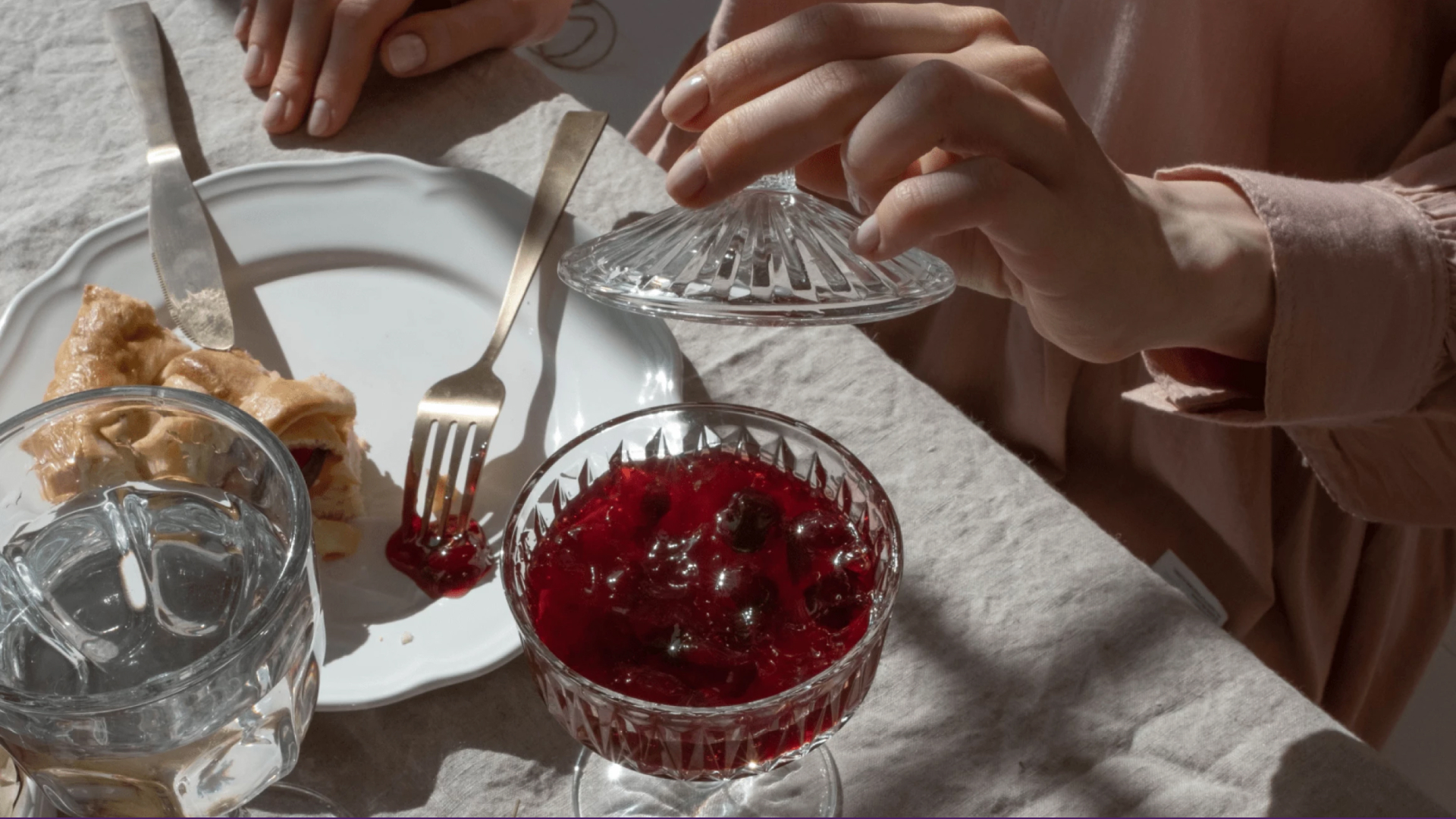
Sophie Mackintosh considers a love found in the kitchen.
One of my favorite ways to show love, platonically and romantically, is to cook. This is not an original sentiment. It’s also, perhaps, not as selfless as it might first appear. Recently, as my meals for those I care for get larger and more elaborate, I have been wondering about my motives. Is it as simple as following a nurturing impulse, or are there other less purely altruistic dynamics at play? Am I overthinking my desire to just create a lovely and (yes, admittedly) impressive spread now and then?
This is not to do myself down. I love to nourish as much as the next person. I love to feed the people I love, to commit to a tangible act of care. Perhaps it is something about the aforementioned tangibility. To cook a meal is to perform a task that is visible, and that has an immediate effect. It solves a problem as well as giving pleasure, to those I cook for, I hope, and to me, and there can be a relief in this. Sometimes I think that the steps in a recipe can be as near as love might get to a formula. When so many ways of caring can be invisible, misconstrued, or take time to bear fruit, there’s a comfort in doing something that you can feel, smell, taste right away.
There’s no denying it is a bit selfish, because I enjoy it so much; there are few things I relish more than writing down a menu, then setting aside several hours in my kitchen for slicing, marinating, preparing. The alchemy of things fitting together is deeply soothing. For a while the only thing I really have to think about is what is immediately in front of me, the pressing task. There is also a sense of permission in taking the time to do this because, after all, we have to eat. And if we can eat together—if a person I love can sit down and eat a meal I have designed and cooked for them, thinking about their favorite flavors, their favorite textures, how hungry or sad or happy or tired they might be—there’s an efficiency and symbiosis to this meeting of needs that pleases me.
But I wonder sometimes whether this symbiosis, this pleasure I also take, makes it less of an act of love? It’s not cooking for its own sake; if the intended eater didn’t eat, or was unhappy with the food, I would feel disappointed, even with the pleasure of the chopping and the braising behind me. And then I think about my keenness to immediately assure you that my desire to cook isn’t selfless. If I hated it, would there be a purity in the service of the act? But then I wouldn’t be the cook I am. Unconditional love is elevated, but symbiotic pleasure is the best kind, so why do I so quickly devalue my own participation? Maybe it’s as simple as the fact that there’s a puritanism in how I think about love, sometimes, which doesn’t belong in the kitchen, and also probably doesn’t belong anywhere else, either.
If thinking in terms of efficiency and suspicion of my own motive feels cold, perhaps it’s because, in an attempt to better understand my own feelings, I am regarding them from as much distance as I can manage, with guidance from the metrics of the task at hand. The analytical space of cooking, where everything has to be timed and measured at least roughly, may feel like a departure from the instinctive place where emotional response lives. In attempts to sit with a feeling, no matter how painful—and how painful love can be, when you are examining your role within it!—you are encouraged to ground yourself in the present moment rather than reacting immediately. Cooking is meditative, in this way. If I reply to that text right now, the butter will burn, you can tell yourself; or, if I allow myself to break down right now, the carrots won’t get peeled. Can we just take a minute, you may ask yourself, for the sake of the meal? Could we focus our attention there—not as a way to repress love and its attendant messiness, the way it sprawls out and touches everything, but to give ourselves, give a situation, some room? Take making ice cream, for example, and how it requires skill, patience, time. Could dedicating oneself to these skills in one area (with the highly motivating and loving goal of the gift of this perfect dessert) teach us something about taking care more generally with those we love?
To feed another person is to offer something of yourself. It’s something you can offer even if you have nothing else to give, even if you are at the tail end of a time that has wrung you dry. It may be that recognizing something as easy to offer, even if technically dextrous, might devalue it. The hardest things to offer in love may by definition be most valuable; the things you don’t want to do but have to, the difficult acts of care where love quietly is made and remade, rather than the flashiness of a soufflé or dinner party. But to be able to offer and provide anything at all, at times where you may feel like it’s impossible, is still something. To move from distraction into devotion, to cook through and into a feeling, letting it rest, is something.
If you can literally feed the people you love, and take them from a state of hunger and wanting to satiation and contentment, that’s not nothing. If you can roast a perfect chicken even when your soul feels like a tin can that’s been hacked open and scraped clean, and in this way take a step towards feeling more normal in the very act of embracing normality, that’s not nothing. Giving what can be given, cultivating pleasure wherever pleasure can be found. To weave little acts of care into daily needs such as eating is a step towards this, as well as a way to remind ourselves of the satisfaction of process, and the patience it requires. Learning to love better takes time.
Related Articles

How deep can a kiss go?
Two psychoanalysts discuss confronting the contemporary abyss of intimacy.

The Feeld Guide to dating while disabled
Practical, expert-backed advice paired with the special sort of synergy that happens when we come together to talk about relationships, identity, companionship, and boundaries.
